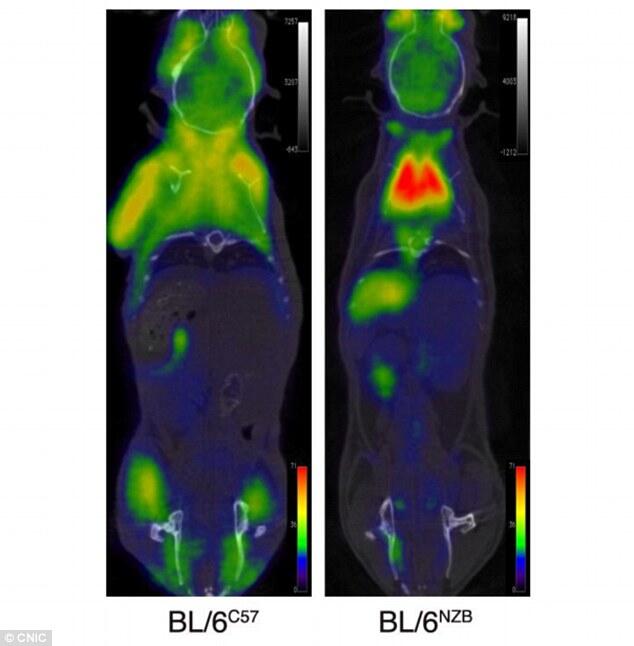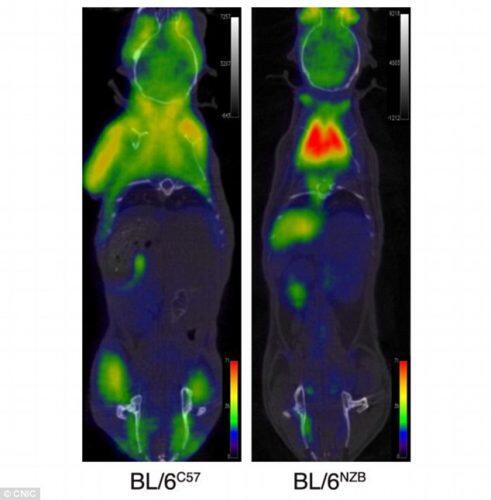Every cell in the human body holds about 20,000-25,000 genes, almost all of them in the nucleus – so-called nuclear DNA.
But 37 others reside in tiny structures called mitochondria, which turn sugar and oxygen into energy and power our cells.
While nuclear DNA is transferred to offspring by both parents, mtDNA is inherited from the mother alone.
Sometimes, genetic mutations can cause mitochondria to malfunction, resulting in organ failure and even death.
Both strains of mtDNA used in the study were healthy, with only a 0.5-percent difference in genetic coding.
All the rodents were bred to have the same nuclear DNA.
Mice in one group ‘were ageing healthier and had a median life span longer than’ the other, Enriquez explained by email.
Lab mice have a life expectancy of just over two years.
Comparing a specimen from each test group at the age of two, the researchers remarked that one showed ‘evident signs of superior health’.
It has ‘more abundant and more lustrous fur,’ they noted, ‘is more robust, has more muscular mass, and is more active.’ Liver function was also better.
‘Regarding the central fact that different mtDNA variants may contribute to the natural differences between individuals, we don’t see any reason why this would be different in humans,’ said Enriquez.
Experts not involved in the study called the results surprising.
Few would have expected that mixing and matching mtDNA would have such an obvious effect.
And while the implications for human health remain unclear, commentators said the results may be important for the field of ‘pronuclear transfer’ – a technique for producing embryos free of mitochondrial diseases carried by their mothers.
The work ‘is an important contribution to the necessary and continuing debate concerning mtDNA replacement,’ said Robert Lightowlers, director of the Institute for Cell and Molecular Biosciences at Newcastle University.
Stem cell researcher Dusko Ilic of King’s College London described the results as ‘fascinating and mind-boggling,’ though further study must determine whether they could be replicated in humans.
Source: AFP












